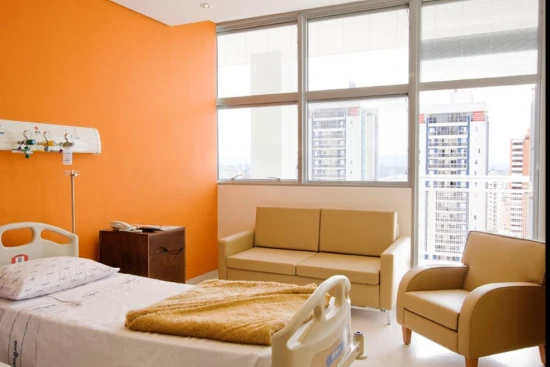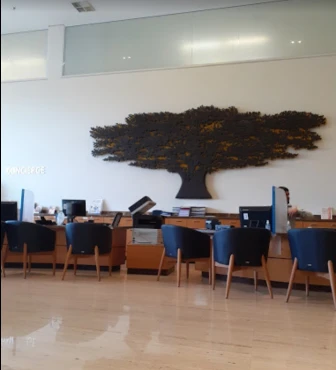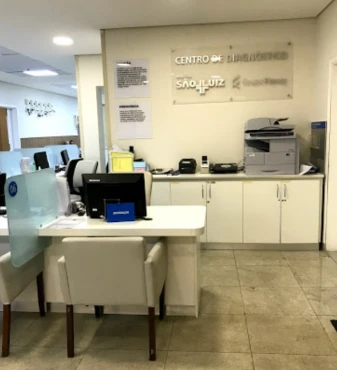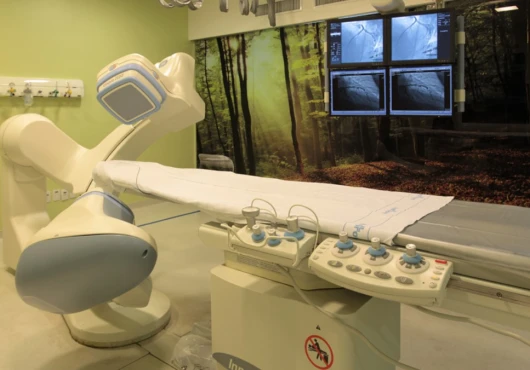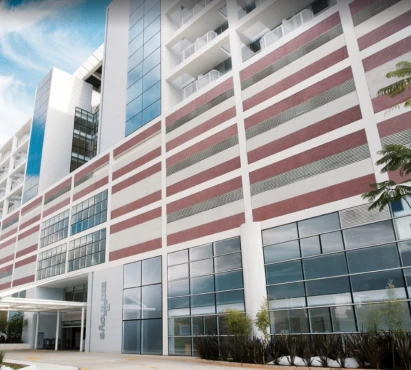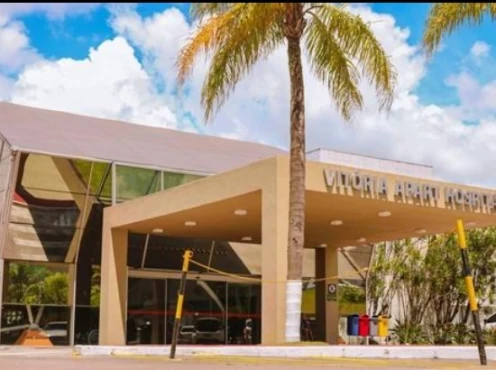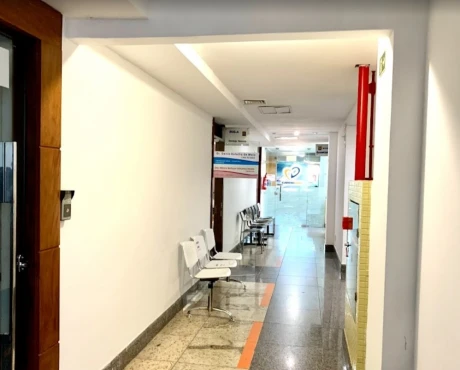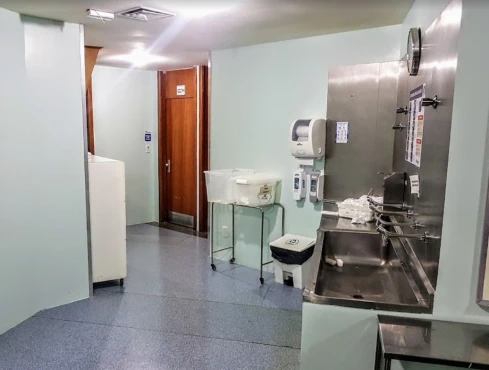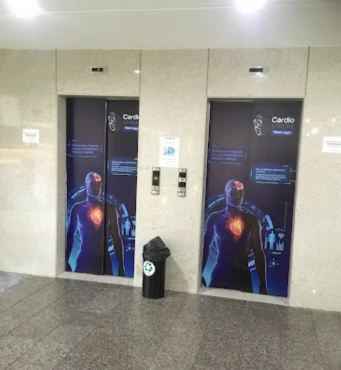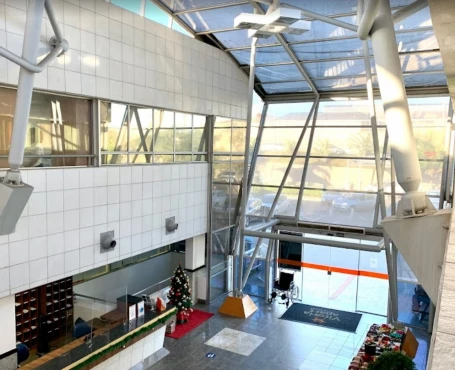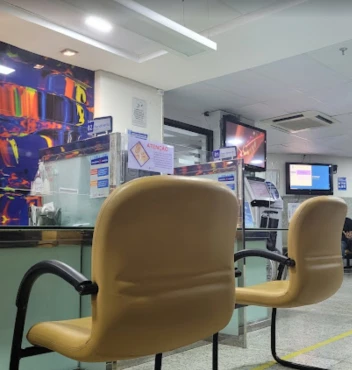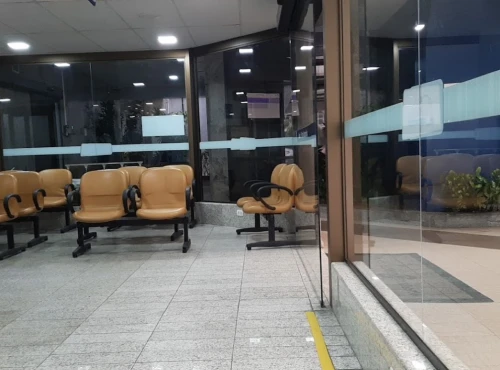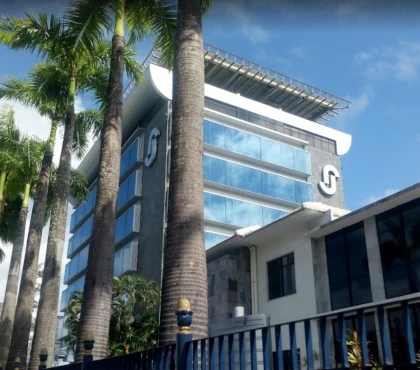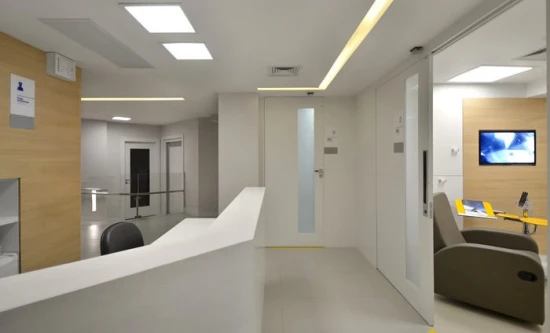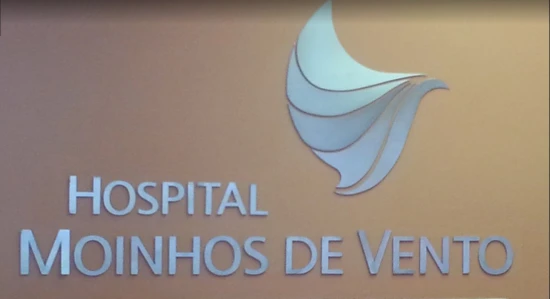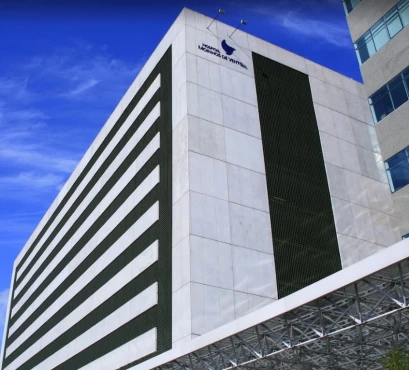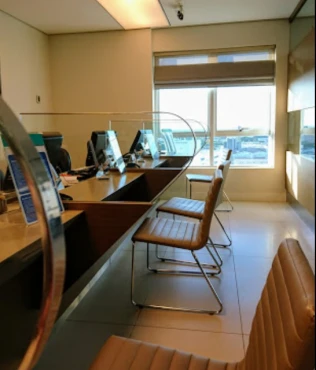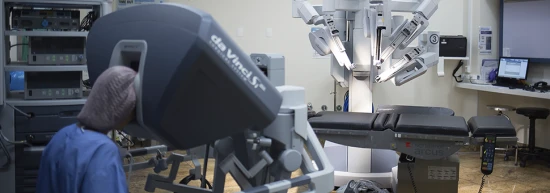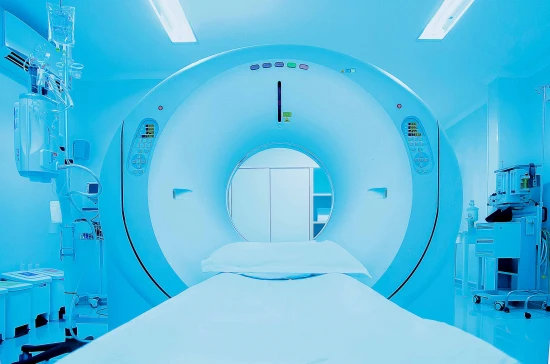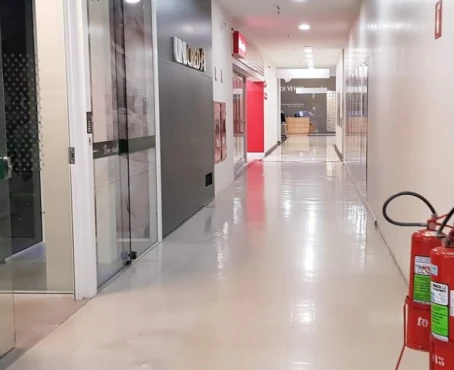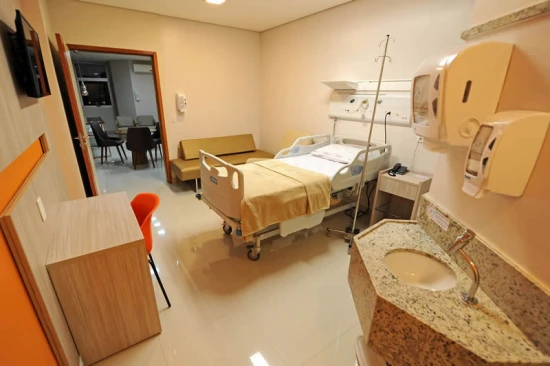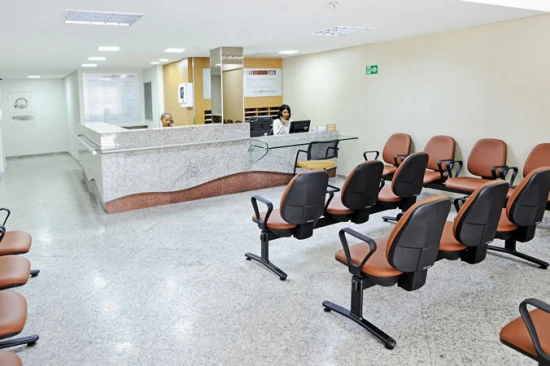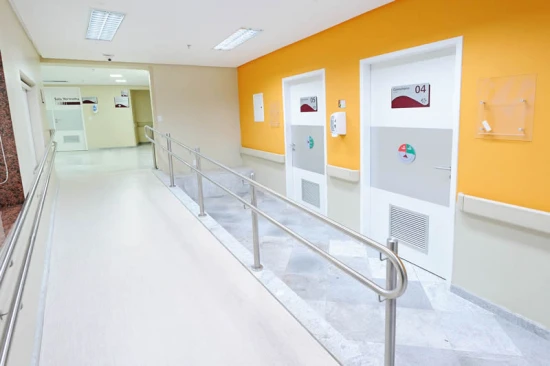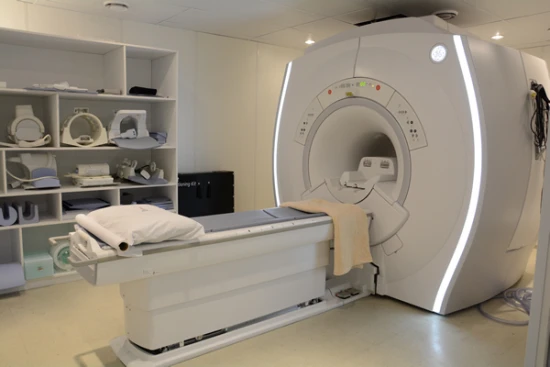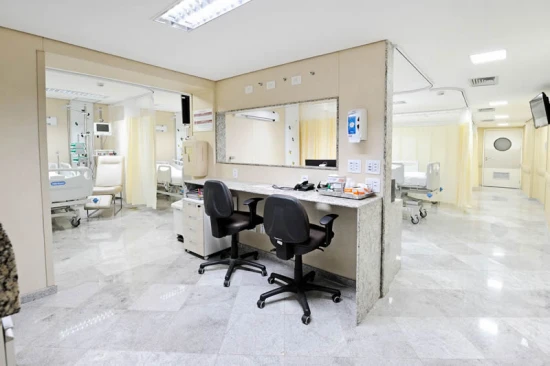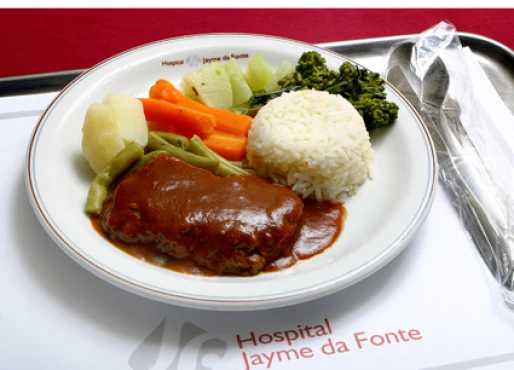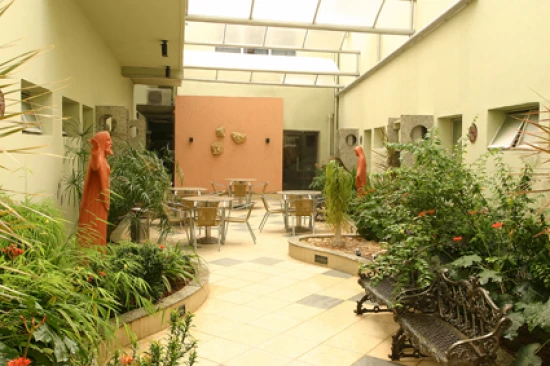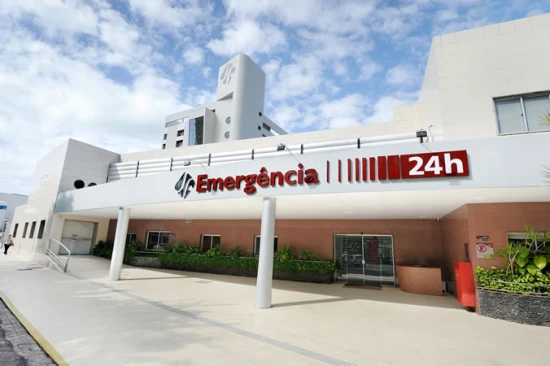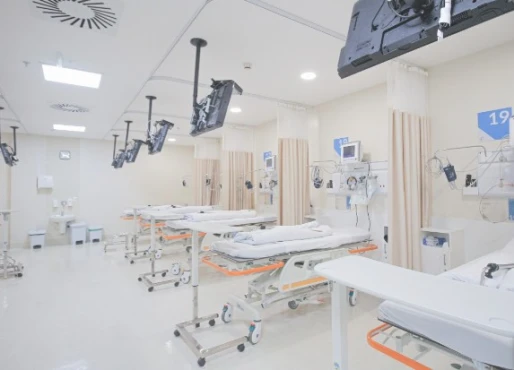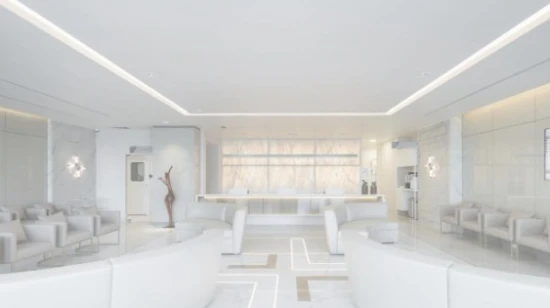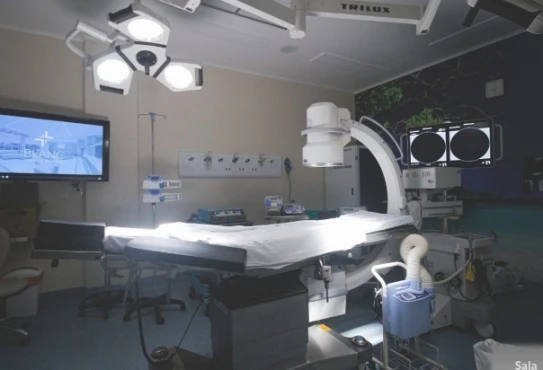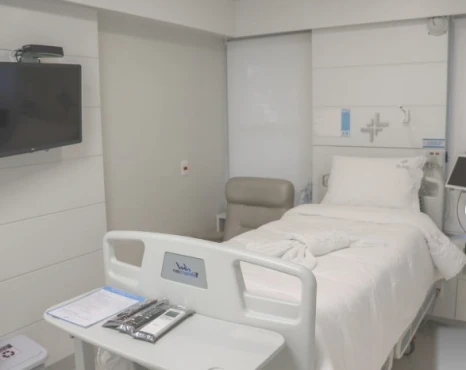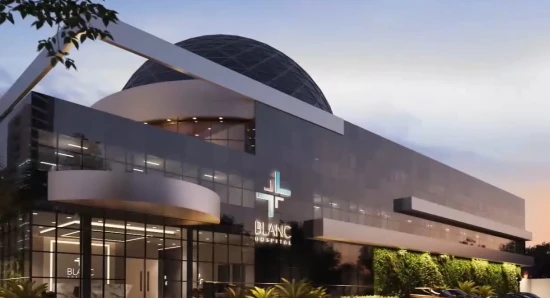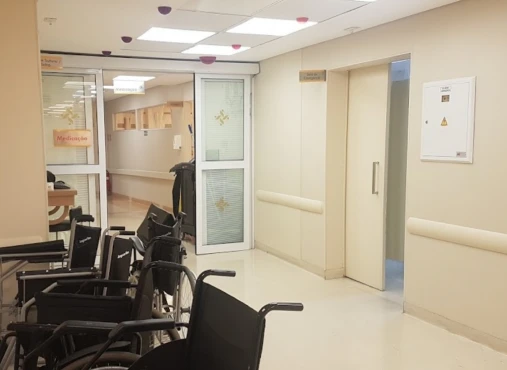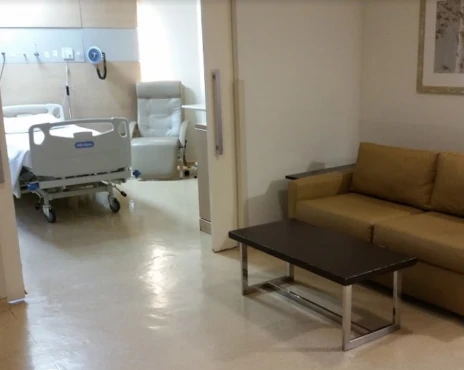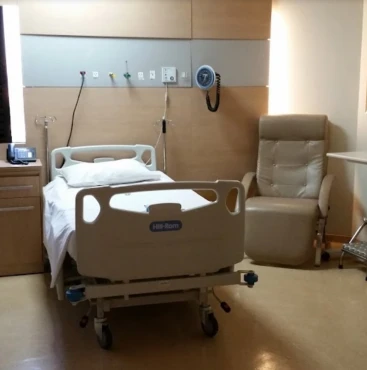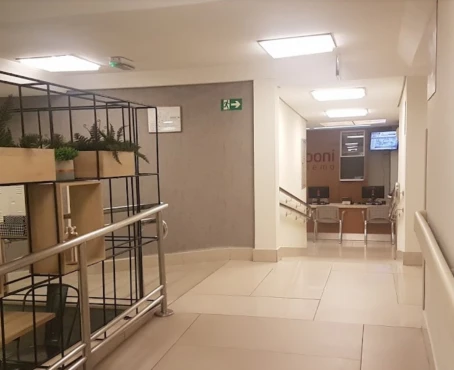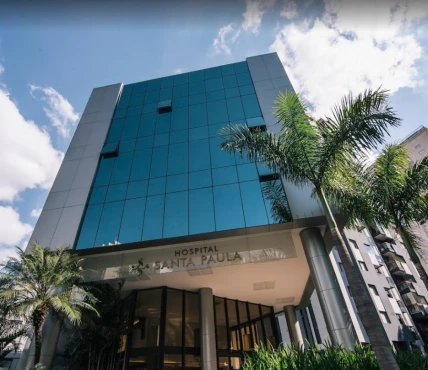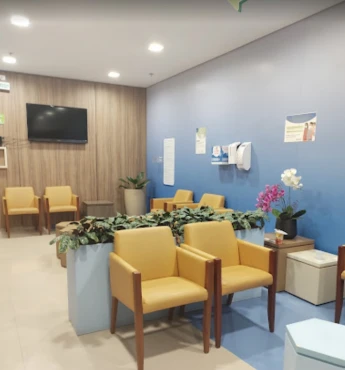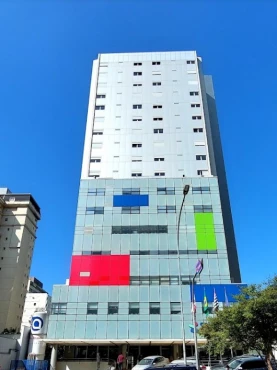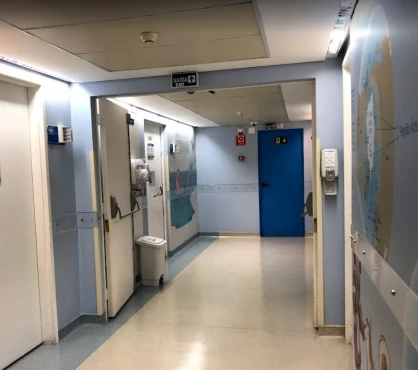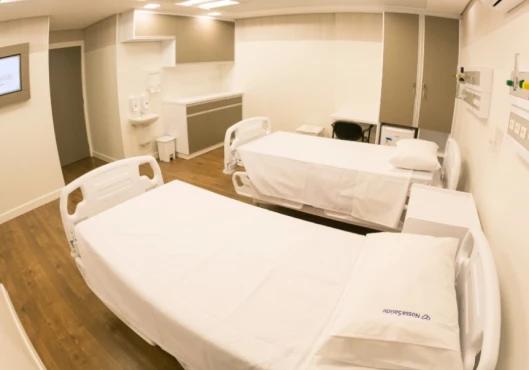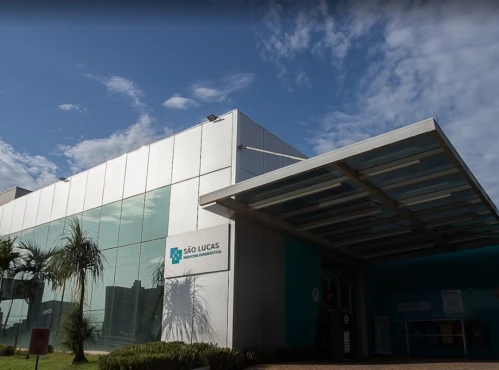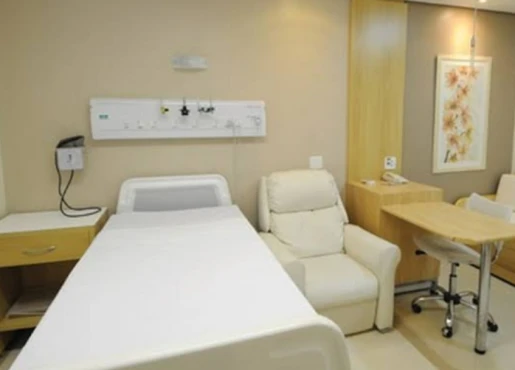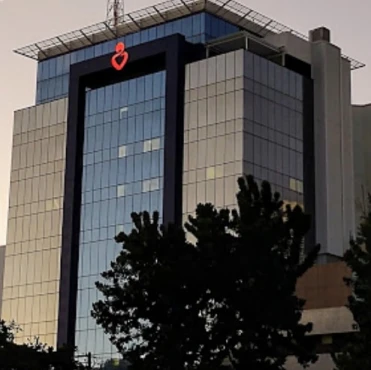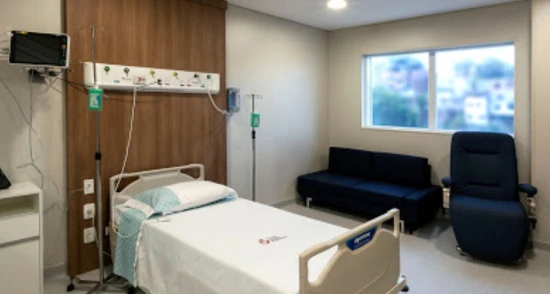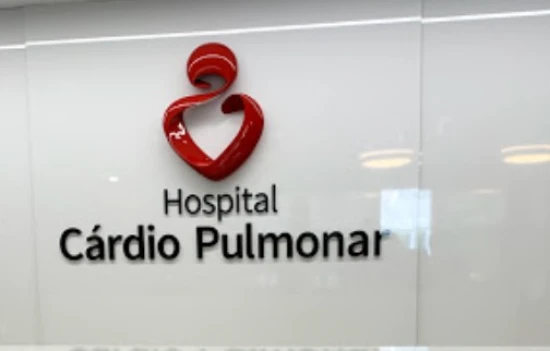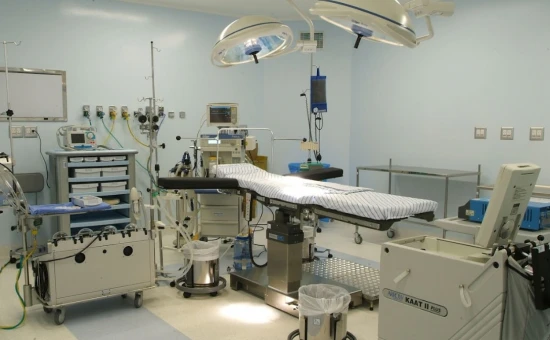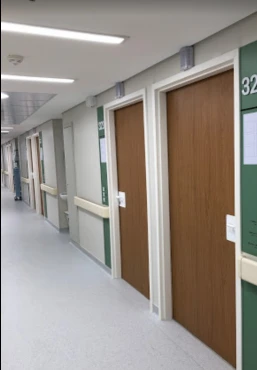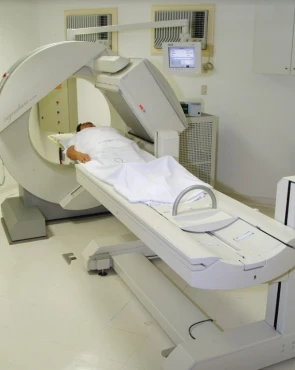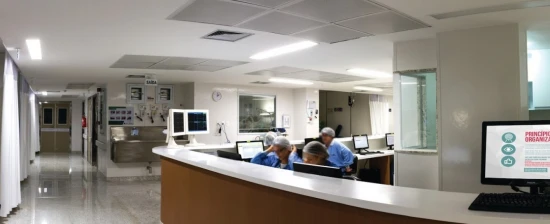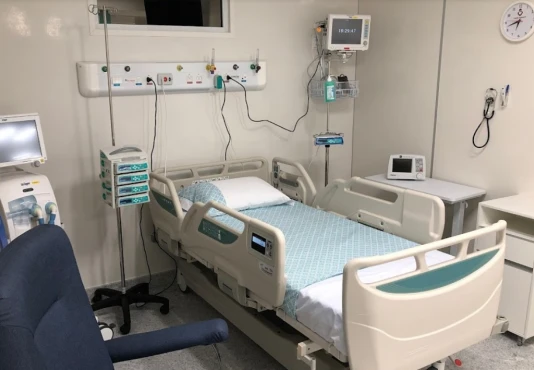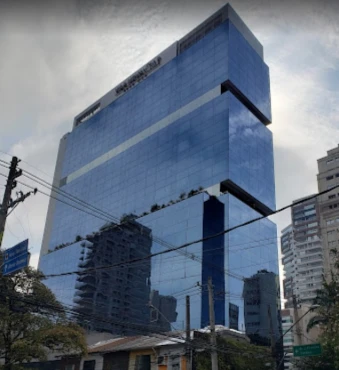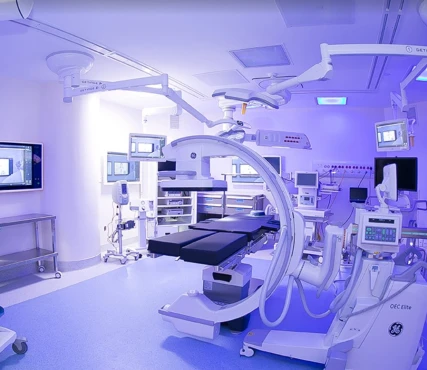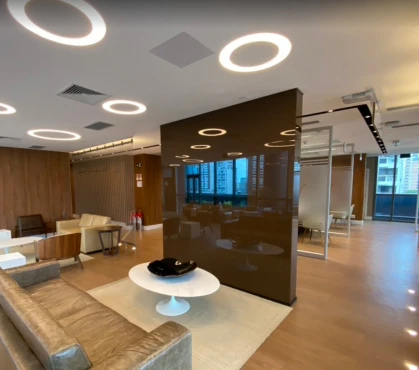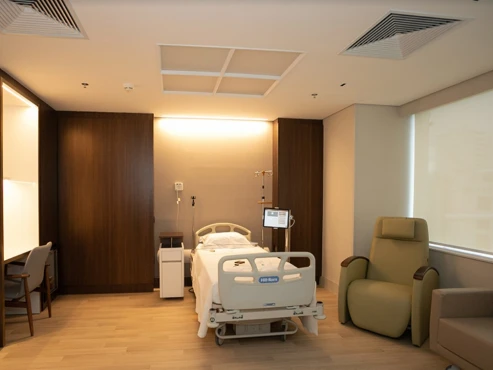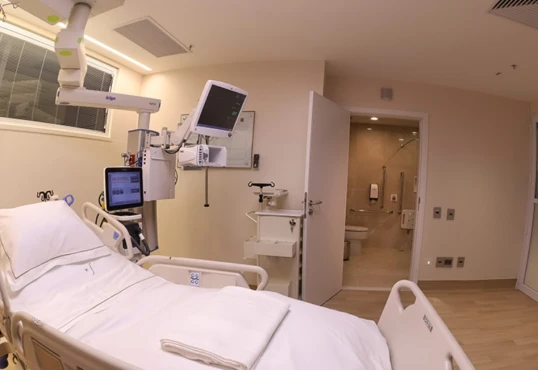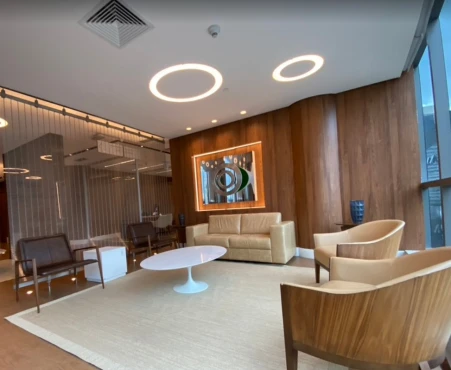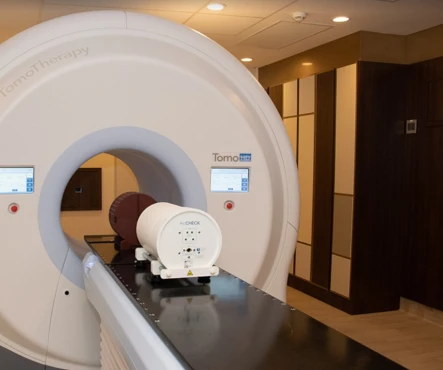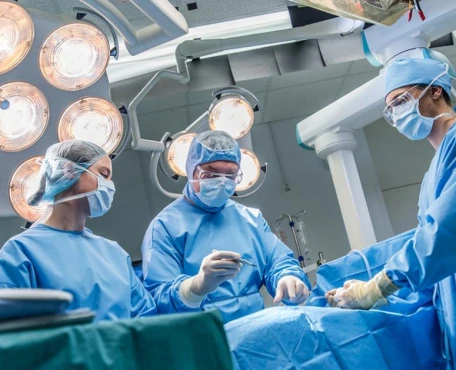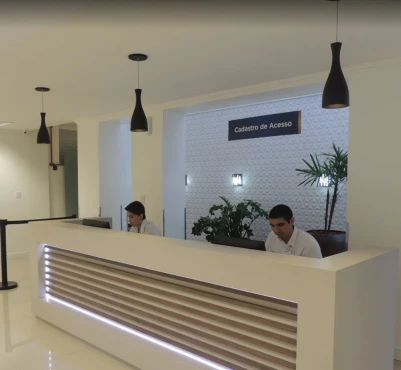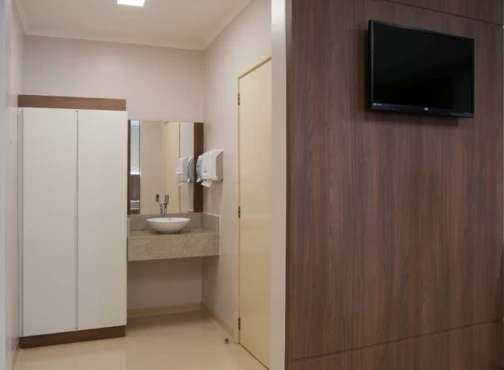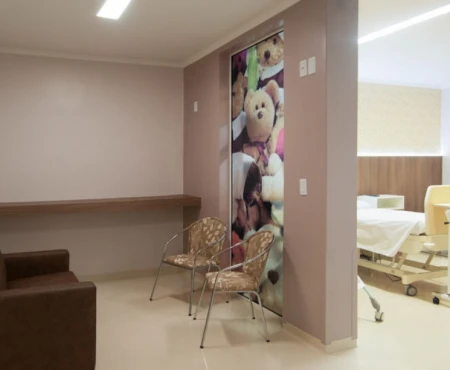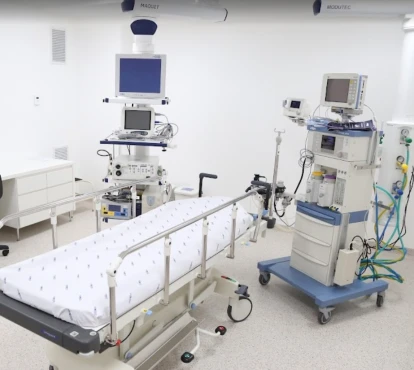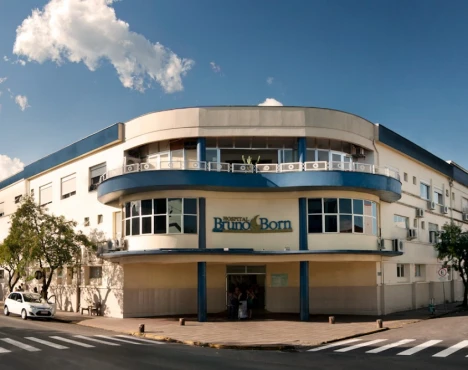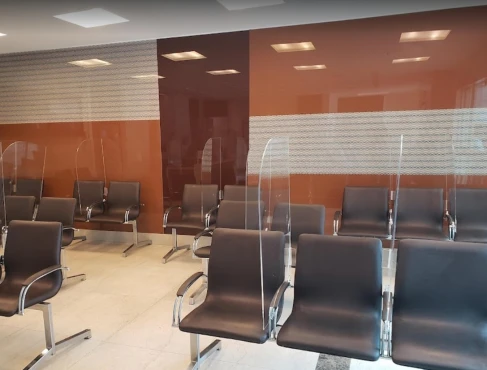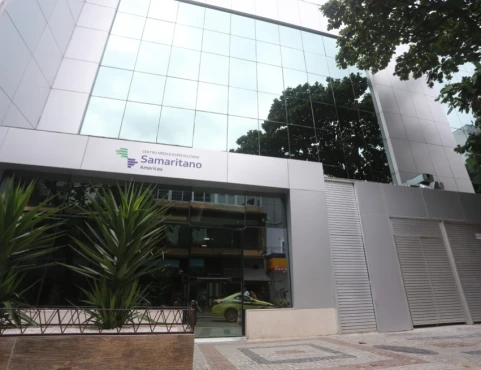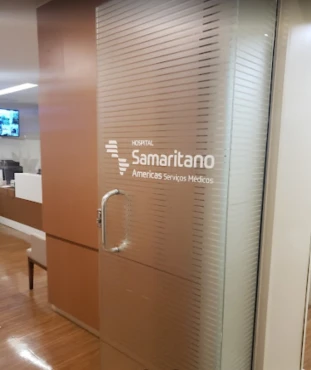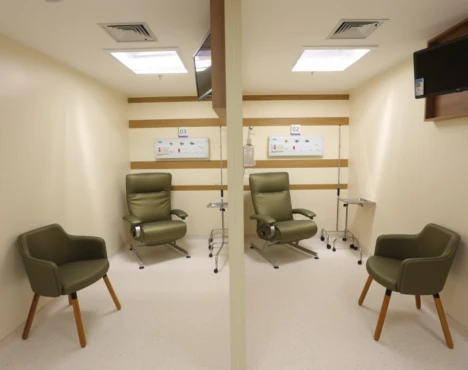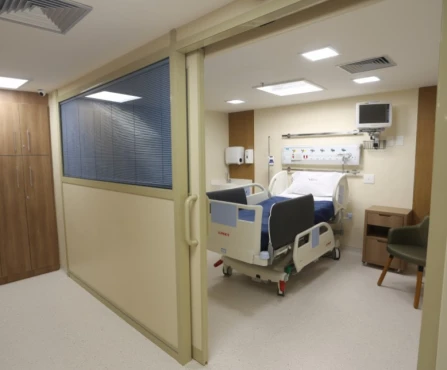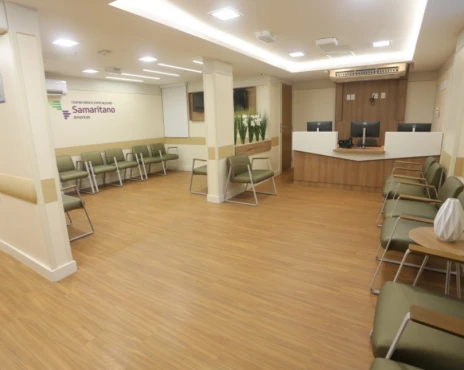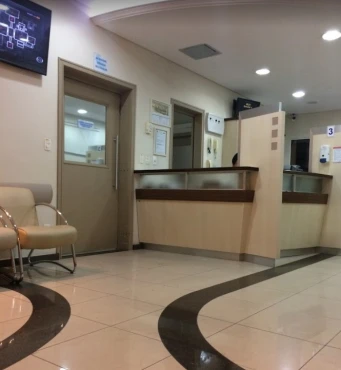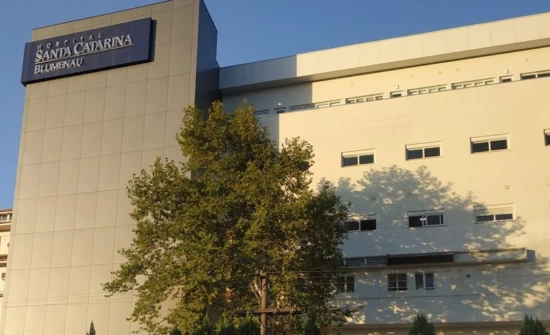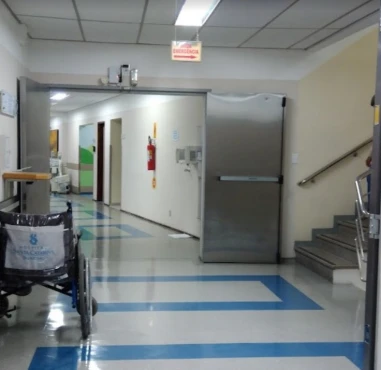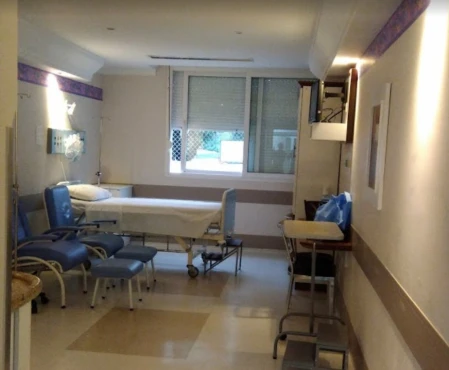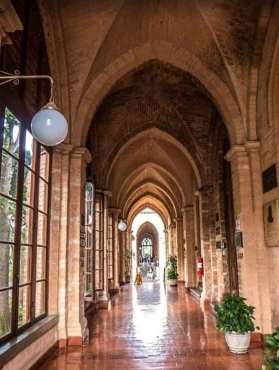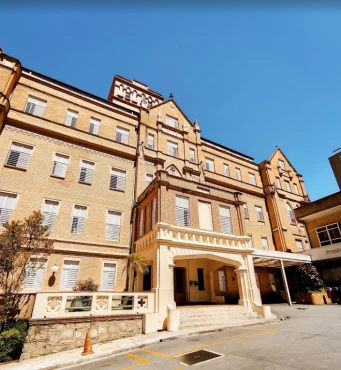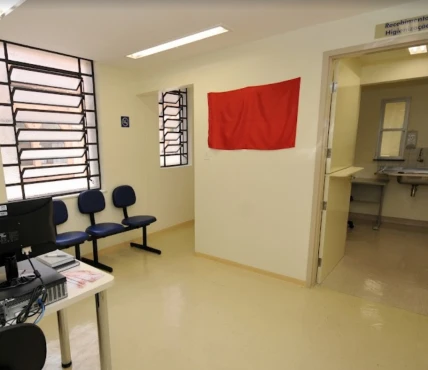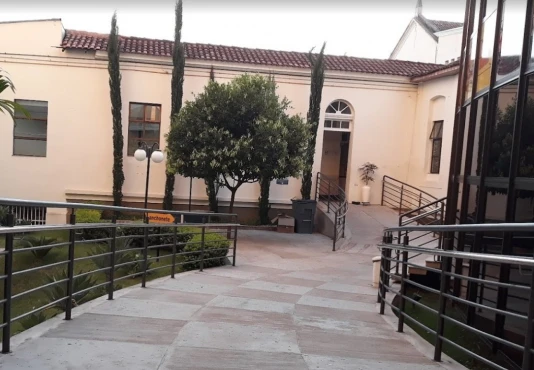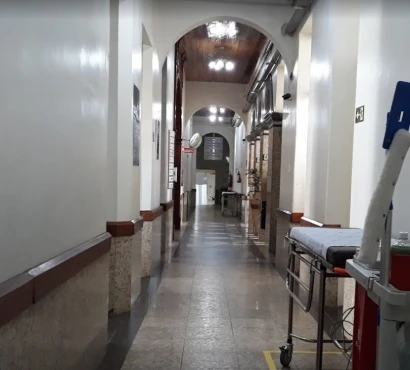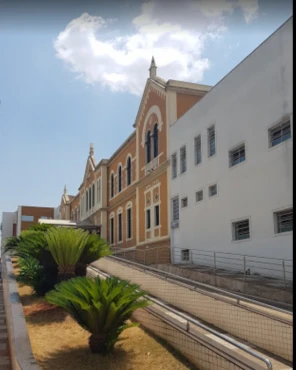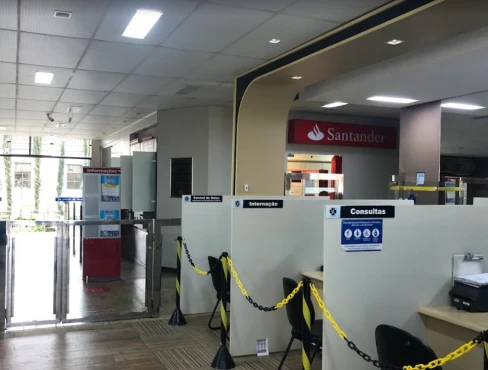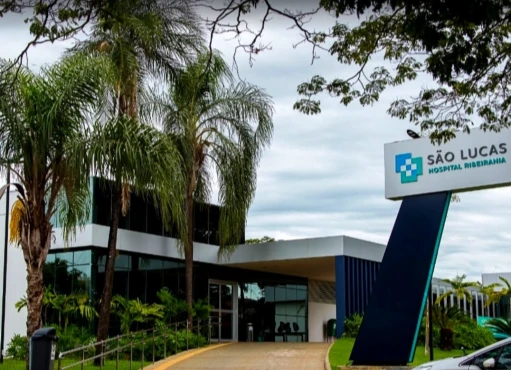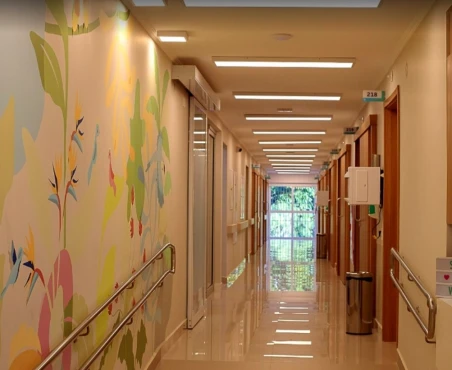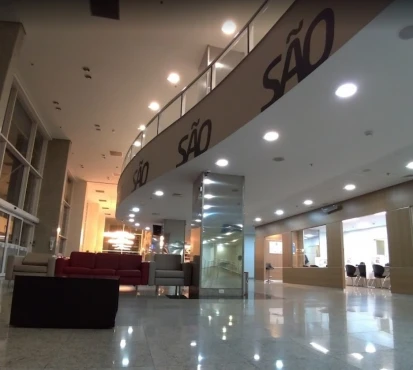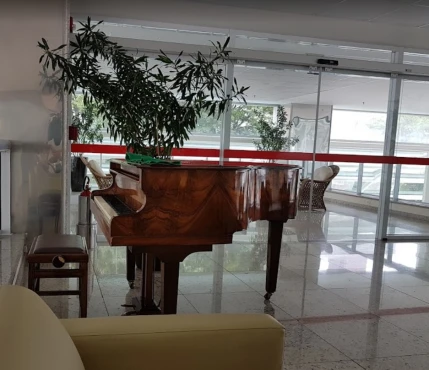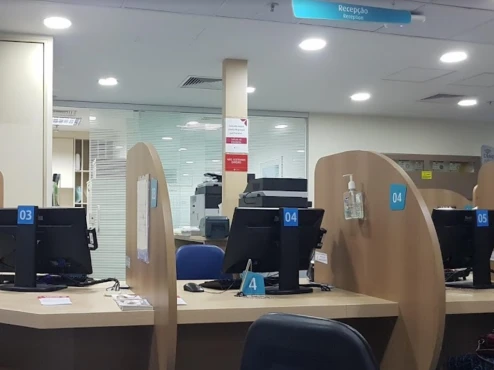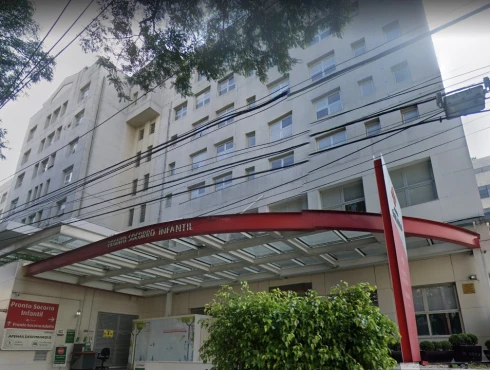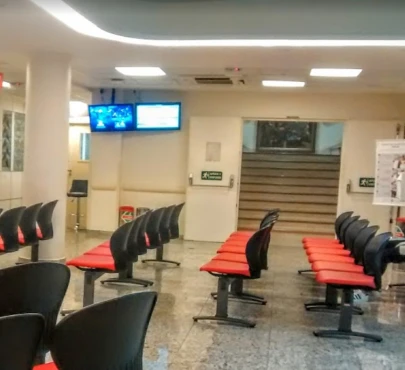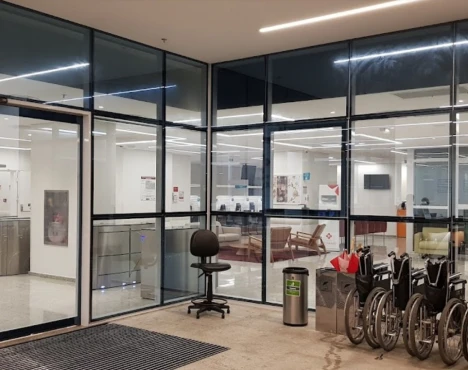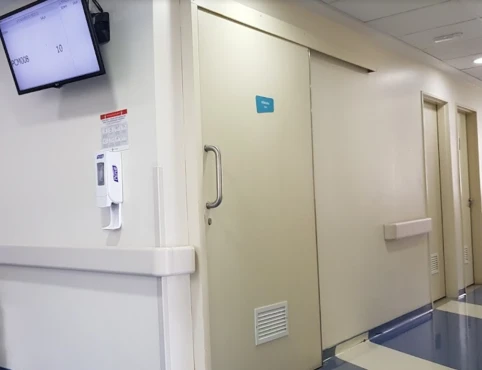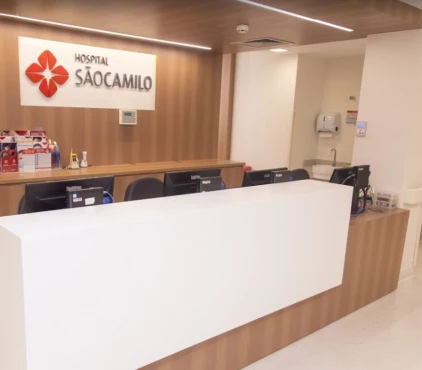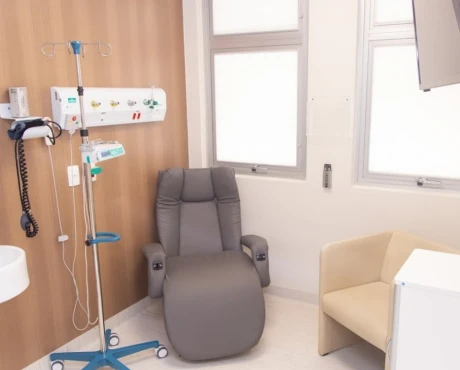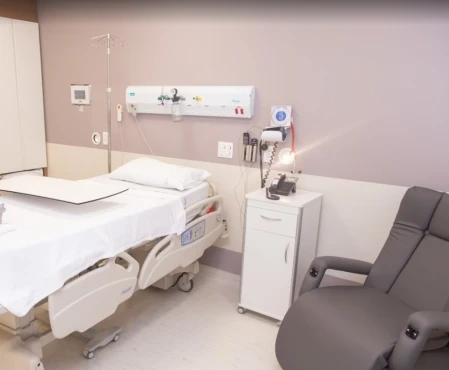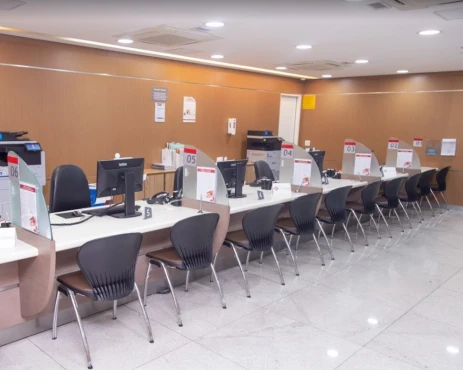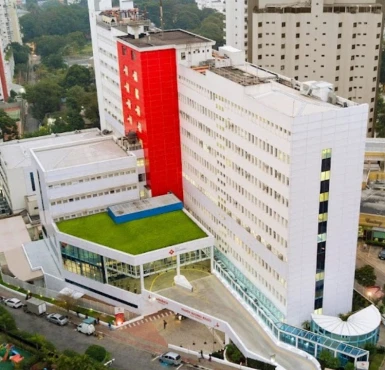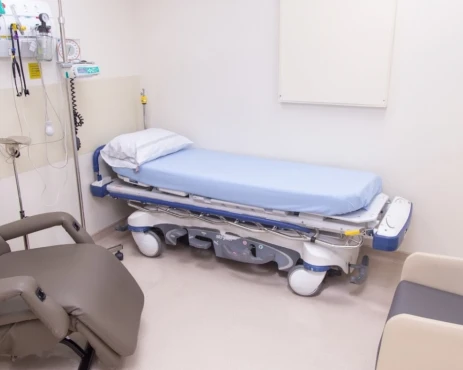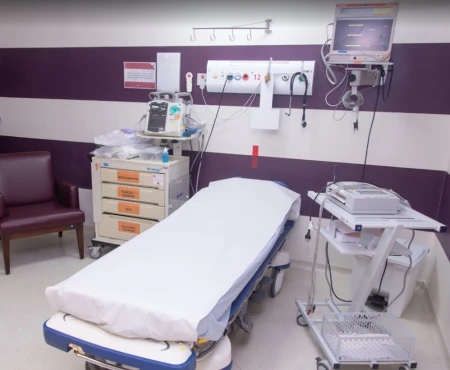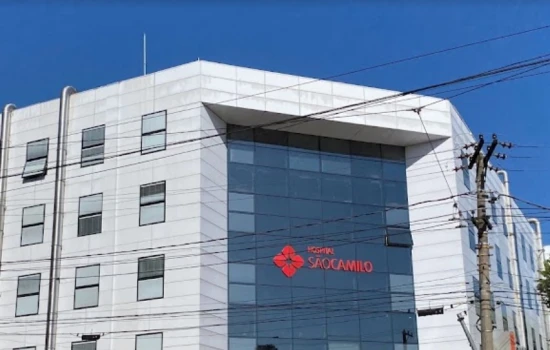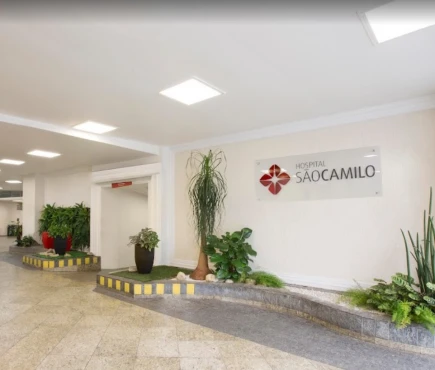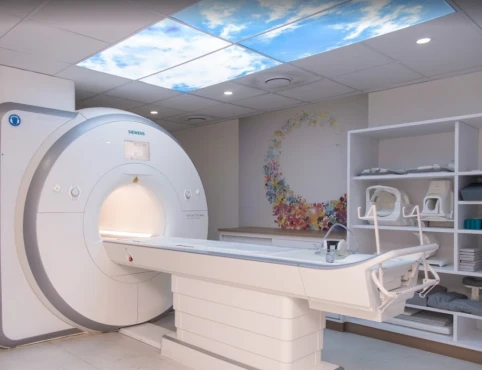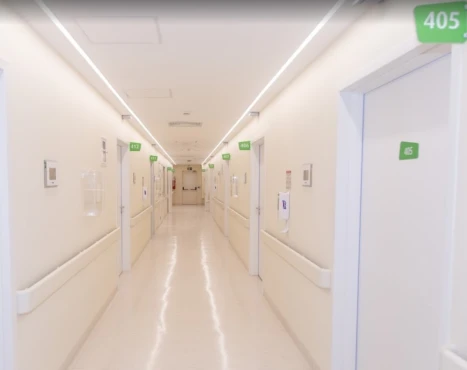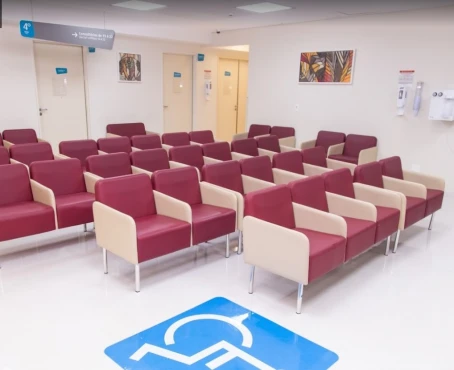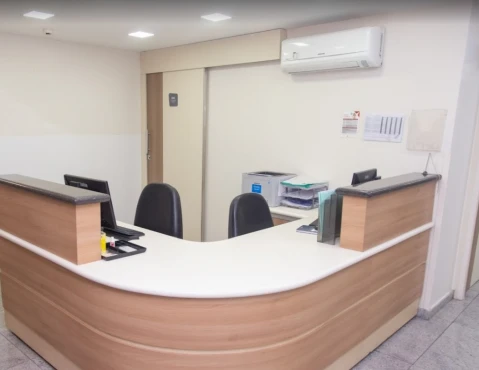Myocardial infarction (MI) treatment in 47 Cardiac surgery clinics in Brazil
47 clinics specializing in Cardiac surgery providing treatment of
Myocardial infarction (MI)
Myocardial infarction (MI), commonly known as a heart attack, occurs when blood flow to a part of the heart is blocked, leading to the death of heart muscle tissue. It is a medical emergency and requires immediate treatment to restore blood flow and prevent further damage.
Read more...
disease in Brazil.
-
Redo heart surgery
≈ $5,628
-
Off-pump coronary artery bypass surgery
≈ $9,656
-
Cardiac catheterization
≈ $964
-
Intraaortic balloon pump (IABP) procedure
≈ $1,347
-
Temporary pacemaker implantation
≈ $513
-
Percutaneous coronary intervention (PCI) with angioplasty
≈ $4,047
-
Percutaneous coronary intervention (PCI) with stent insertion
≈ $3,659
-
Dual chamber pacemaker insertion
≈ $4,453
-
Coronary artery bypass graft (CABG)
≈ $8,358
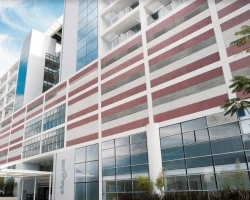
-
Redo heart surgery
≈ $5,628
-
Off-pump coronary artery bypass surgery
≈ $9,656
-
Cardiac catheterization
≈ $964
-
Intraaortic balloon pump (IABP) procedure
≈ $1,347
-
Temporary pacemaker implantation
≈ $513
-
Percutaneous coronary intervention (PCI) with angioplasty
≈ $4,047
-
Percutaneous coronary intervention (PCI) with stent insertion
≈ $3,659
-
Dual chamber pacemaker insertion
≈ $4,453
-
Coronary artery bypass graft (CABG)
≈ $8,358
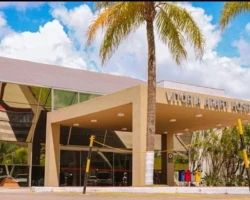
-
Redo heart surgery
≈ $5,628
-
Off-pump coronary artery bypass surgery
≈ $9,656
-
Percutaneous coronary intervention (PCI) with angioplasty
≈ $4,047
-
Percutaneous coronary intervention (PCI) with stent insertion
≈ $3,659
-
Coronary artery bypass graft (CABG)
≈ $8,358
-
Coronary catheterization
≈ $964
-
Atrial septal defect (ASD) repair
≈ $8,186
-
Ventricular septal defect (VSD) repair
≈ $9,961
-
Septal myectomy
≈ $8,572
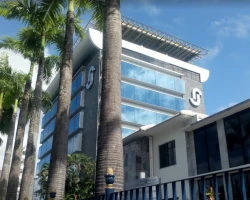
-
Redo heart surgery
≈ $5,628
-
Off-pump coronary artery bypass surgery
≈ $9,656
-
Cardiac catheterization
≈ $964
-
Intraaortic balloon pump (IABP) procedure
≈ $1,347
-
Temporary pacemaker implantation
≈ $513
-
Percutaneous coronary intervention (PCI) with angioplasty
≈ $4,047
-
Percutaneous coronary intervention (PCI) with stent insertion
≈ $3,659
-
Dual chamber pacemaker insertion
≈ $4,453
-
Coronary artery bypass graft (CABG)
≈ $8,358
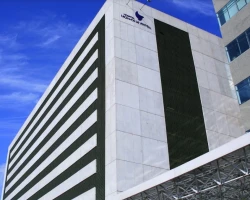
-
Redo heart surgery
≈ $5,628
-
Off-pump coronary artery bypass surgery
≈ $9,656
-
Temporary pacemaker implantation
≈ $513
-
Dual chamber pacemaker insertion
≈ $4,453
-
Coronary artery bypass graft (CABG)
≈ $8,358
-
Permanent pacemaker implantation
≈ $3,604
-
Removal of permanent pacemaker
≈ $2,593
-
Single chamber pacemaker insertion
≈ $3,970
-
Cardiac resynchronization therapy with pacemaker (CRT-P)
≈ $6,669
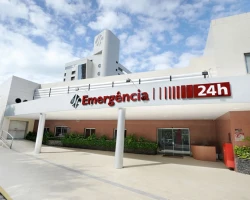
-
Redo heart surgery
≈ $5,628
-
Off-pump coronary artery bypass surgery
≈ $9,656
-
Coronary artery bypass graft (CABG)
≈ $8,358
-
Heart valve replacement
≈ $8,449
-
Heart valve repair
≈ $8,946
-
Aortic valve replacement (AVR)
≈ $9,170
-
Mitral valve replacement (MVR)
≈ $8,187
-
Transcatheter aortic valve replacement (TAVR)
≈ $17,216
-
Atrial septal defect (ASD) repair
≈ $8,186
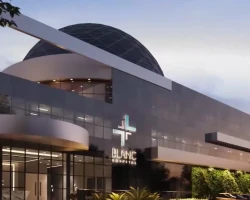
-
Redo heart surgery
≈ $5,628
-
Off-pump coronary artery bypass surgery
≈ $9,656
-
Temporary pacemaker implantation
≈ $513
-
Percutaneous coronary intervention (PCI) with angioplasty
≈ $4,047
-
Percutaneous coronary intervention (PCI) with stent insertion
≈ $3,659
-
Dual chamber pacemaker insertion
≈ $4,453
-
Coronary artery bypass graft (CABG)
≈ $8,358
-
Heart valve replacement
≈ $8,449
-
Heart valve repair
≈ $8,946
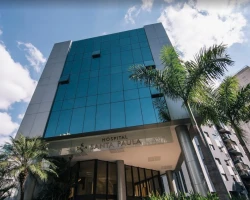
-
Cardiac catheterization
≈ $964
-
Intraaortic balloon pump (IABP) procedure
≈ $1,347
-
Temporary pacemaker implantation
≈ $513
-
Dual chamber pacemaker insertion
≈ $4,453
-
Heart valve replacement
≈ $8,449
-
Heart valve repair
≈ $8,946
-
Aortic valve replacement (AVR)
≈ $9,170
-
Mitral valve replacement (MVR)
≈ $8,187
-
Transcatheter aortic valve replacement (TAVR)
≈ $17,216
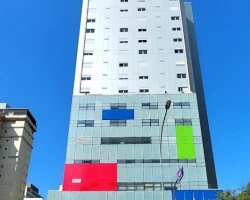
-
Redo heart surgery
≈ $5,628
-
Off-pump coronary artery bypass surgery
≈ $9,656
-
Cardiac catheterization
≈ $964
-
Intraaortic balloon pump (IABP) procedure
≈ $1,347
-
Percutaneous coronary intervention (PCI) with angioplasty
≈ $4,047
-
Percutaneous coronary intervention (PCI) with stent insertion
≈ $3,659
-
Coronary artery bypass graft (CABG)
≈ $8,358
-
Heart valve replacement
≈ $8,449
-
Heart valve repair
≈ $8,946
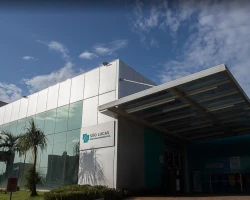
-
Redo heart surgery
≈ $5,628
-
Off-pump coronary artery bypass surgery
≈ $9,656
-
Coronary artery bypass graft (CABG)
≈ $8,358
-
Heart valve replacement
≈ $8,449
-
Heart valve repair
≈ $8,946
-
Aortic valve replacement (AVR)
≈ $9,170
-
Mitral valve replacement (MVR)
≈ $8,187
-
Transcatheter aortic valve replacement (TAVR)
≈ $17,216
-
Fontan procedure
≈ $9,384
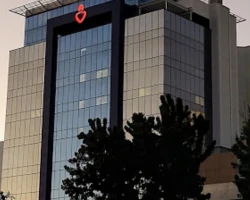
-
Cardiac catheterization
≈ $964
-
Intraaortic balloon pump (IABP) procedure
≈ $1,347
-
Percutaneous coronary intervention (PCI) with angioplasty
≈ $4,047
-
Percutaneous coronary intervention (PCI) with stent insertion
≈ $3,659
-
Percutaneous ASD closure
≈ $4,125
-
Percutaneous closure of ventricular septal defect (VSD)
≈ $5,117
-
Coronary catheterization
≈ $964
-
Transcatheter closure of patent ductus arteriosus (PDA) in adults
≈ $4,162
-
Rashkind procedure
≈ $4,040
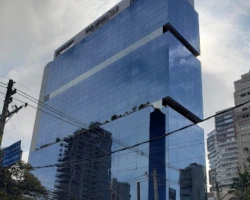
-
Redo heart surgery
≈ $5,628
-
Off-pump coronary artery bypass surgery
≈ $9,656
-
Cardiac catheterization
≈ $964
-
Intraaortic balloon pump (IABP) procedure
≈ $1,347
-
Temporary pacemaker implantation
≈ $513
-
Percutaneous coronary intervention (PCI) with angioplasty
≈ $4,047
-
Percutaneous coronary intervention (PCI) with stent insertion
≈ $3,659
-
Dual chamber pacemaker insertion
≈ $4,453
-
Coronary artery bypass graft (CABG)
≈ $8,358
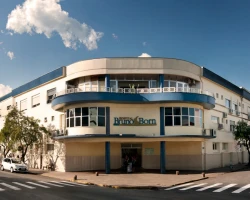
-
Redo heart surgery
≈ $5,628
-
Off-pump coronary artery bypass surgery
≈ $9,656
-
Temporary pacemaker implantation
≈ $513
-
Percutaneous coronary intervention (PCI) with angioplasty
≈ $4,047
-
Percutaneous coronary intervention (PCI) with stent insertion
≈ $3,659
-
Dual chamber pacemaker insertion
≈ $4,453
-
Coronary artery bypass graft (CABG)
≈ $8,358
-
Permanent pacemaker implantation
≈ $3,604
-
Radiofrequency ablation (RFA)
≈ $6,582
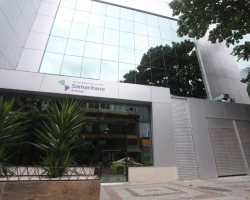
-
Redo heart surgery
≈ $5,628
-
Off-pump coronary artery bypass surgery
≈ $9,656
-
Percutaneous coronary intervention (PCI) with angioplasty
≈ $4,047
-
Percutaneous coronary intervention (PCI) with stent insertion
≈ $3,659
-
Coronary artery bypass graft (CABG)
≈ $8,358
-
Coronary catheterization
≈ $964
-
Atrial septal defect (ASD) repair
≈ $8,186
-
Ventricular septal defect (VSD) repair
≈ $9,961
-
Septal myectomy
≈ $8,572
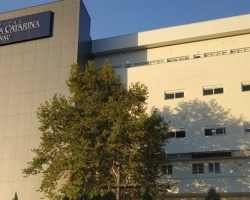
-
Temporary pacemaker implantation
≈ $513
-
Dual chamber pacemaker insertion
≈ $4,453
-
Permanent pacemaker implantation
≈ $3,604
-
Removal of permanent pacemaker
≈ $2,593
-
Single chamber pacemaker insertion
≈ $3,970
-
Cardiac resynchronization therapy with pacemaker (CRT-P)
≈ $6,669
-
Cardiac resynchronization therapy with defibrillator (CRT-D)
≈ $10,404
-
Pacemaker replacement
≈ $2,015
-
Leadless Pacemaker implantation Micra and Nanostim
≈ $2,419
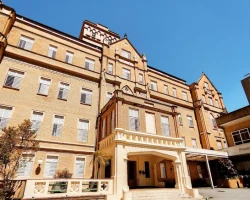
-
Cardiac catheterization
≈ $964
-
Intraaortic balloon pump (IABP) procedure
≈ $1,347
-
Temporary pacemaker implantation
≈ $513
-
Percutaneous coronary intervention (PCI) with angioplasty
≈ $4,047
-
Percutaneous coronary intervention (PCI) with stent insertion
≈ $3,659
-
Dual chamber pacemaker insertion
≈ $4,453
-
Heart valve replacement
≈ $8,449
-
Heart valve repair
≈ $8,946
-
Aortic valve replacement (AVR)
≈ $9,170
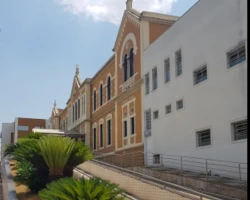
-
Redo heart surgery
≈ $5,628
-
Off-pump coronary artery bypass surgery
≈ $9,656
-
Cardiac catheterization
≈ $964
-
Intraaortic balloon pump (IABP) procedure
≈ $1,347
-
Temporary pacemaker implantation
≈ $513
-
Percutaneous coronary intervention (PCI) with angioplasty
≈ $4,047
-
Percutaneous coronary intervention (PCI) with stent insertion
≈ $3,659
-
Dual chamber pacemaker insertion
≈ $4,453
-
Coronary artery bypass graft (CABG)
≈ $8,358
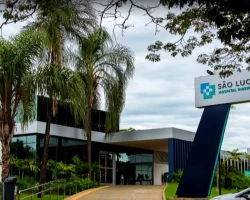
-
Redo heart surgery
≈ $5,628
-
Off-pump coronary artery bypass surgery
≈ $9,656
-
Cardiac catheterization
≈ $964
-
Intraaortic balloon pump (IABP) procedure
≈ $1,347
-
Percutaneous coronary intervention (PCI) with angioplasty
≈ $4,047
-
Percutaneous coronary intervention (PCI) with stent insertion
≈ $3,659
-
Coronary artery bypass graft (CABG)
≈ $8,358
-
Radiofrequency ablation (RFA)
≈ $6,582
-
Percutaneous ASD closure
≈ $4,125
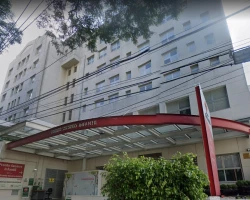
-
Redo heart surgery
≈ $5,628
-
Off-pump coronary artery bypass surgery
≈ $9,656
-
Cardiac catheterization
≈ $964
-
Intraaortic balloon pump (IABP) procedure
≈ $1,347
-
Percutaneous coronary intervention (PCI) with angioplasty
≈ $4,047
-
Percutaneous coronary intervention (PCI) with stent insertion
≈ $3,659
-
Coronary artery bypass graft (CABG)
≈ $8,358
-
Radiofrequency ablation (RFA)
≈ $6,582
-
Percutaneous ASD closure
≈ $4,125
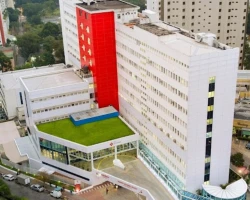
-
Cardiac catheterization
≈ $964
-
Intraaortic balloon pump (IABP) procedure
≈ $1,347
-
Percutaneous coronary intervention (PCI) with angioplasty
≈ $4,047
-
Percutaneous coronary intervention (PCI) with stent insertion
≈ $3,659
-
Radiofrequency ablation (RFA)
≈ $6,582
-
Percutaneous ASD closure
≈ $4,125
-
Percutaneous closure of ventricular septal defect (VSD)
≈ $5,117
-
Coronary catheterization
≈ $964
-
Catheter cardiac ablation
≈ $3,518
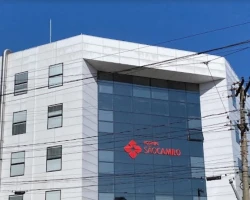
Clinics grouping by rating
Clinic with the highest rating of 4.6 — Hospital Vila Nova Star in São Paulo, Brazil, clinic with the most reviews number of 4938 — Hospital São Camilo Pompeia in São Paulo, Brazil.
With rating 4.0 and over — 18 clinics .
Countries with the highest number of clinics treating the diseases:
Myocardial infarction (MI):
Related procedures:
Quick navigation
- Balloon angioplasty and stenting of aorta coarctation ≈ $4,674
- Cardiac catheterization ≈ $972
- Coarctectomy in children ≈ $8,301
- Coil embolization of intracardiac shunts and fistulas ≈ $3,241
- Extracorporeal membrane oxygenation (ECMO) by request
- Heart tumor surgery ≈ $7,097
- Intraaortic balloon pump (IABP) procedure ≈ $1,359
- Left atrial appendage occlusion ≈ $5,884
- MAZE procedure ≈ $5,198
- Minimally invasive valvular heart surgery with valve repair or replacement by request
- NobleStitch™ PFO closure procedure by request
- Open-heart intracardiac foreign body removal ≈ $7,290
- Patent ductus arteriosus (PDA) open heart surgery in adults ≈ $4,017
- Percutaneous ASD closure ≈ $4,160
- Percutaneous closure of ventricular septal defect (VSD) ≈ $5,160
- Rashkind procedure ≈ $4,074
- Surgery for tetralogy of Fallot (TOF) in adults ≈ $5,776
- Surgical ventricular restoration (SVR) ≈ $8,939
- Transcatheter closure of patent ductus arteriosus (PDA) in adults ≈ $4,197
- Ventricular septal defect (VSD) repair ≈ $10,045
- Aortic valve insufficiency
- Aortic valve stenosis
- Atrial fibrillation (AFib)
- Coarctation of the aorta (CoA)
- Foreign bodies in the heart
- Heart failure
- Heart tumor
- Heart valve disease
- Mitral valve insufficiency
- Mitral valve stenosis
- Multivalvular disease
- Myocardial infarction (MI)
- Pneumonia
- Pulmonary hypertension
- Sinus of valsalva aneurysm (SOVA)
- Tricuspid valve insufficiency
- Tricuspid valve stenosis
- Valvular insufficiency
- Ventricular aneurysm
- Ventricular septal rupture (VSR)
